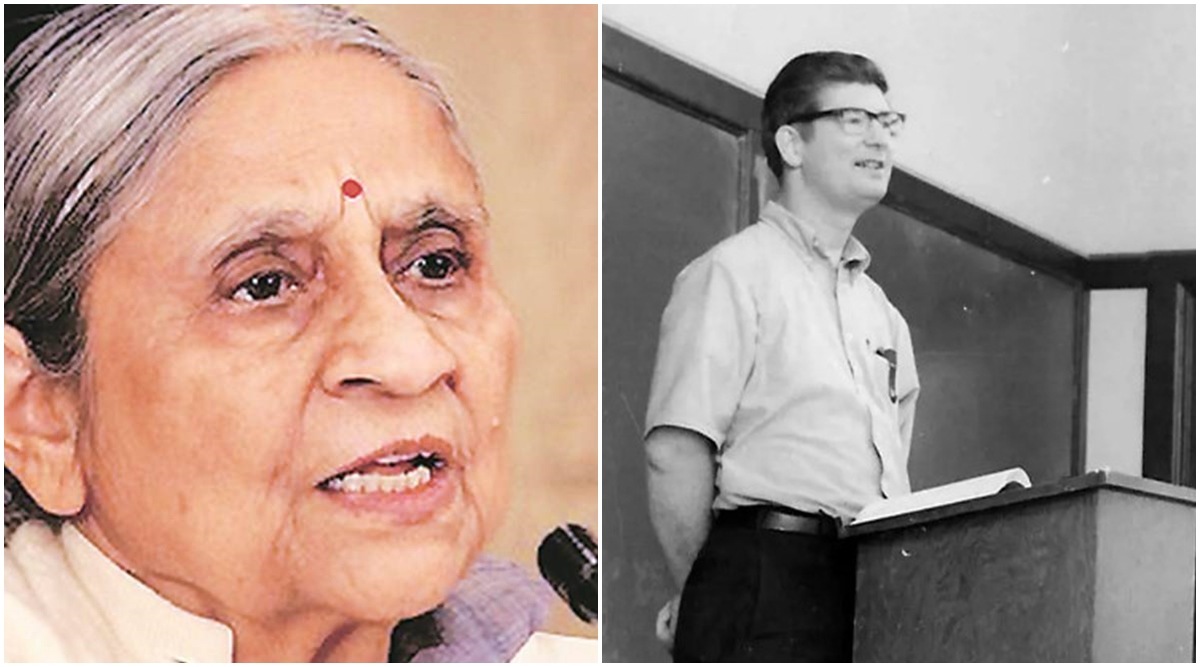 Ela Bhatt (Left) and Herman Daly (Photo: File/NYT)
Ela Bhatt (Left) and Herman Daly (Photo: File/NYT)The passing away of two visionaries last week raises some tricky questions about the future. Elaben Bhatt showed in practice how humane energies have a play in the marketplace. Herman Daly, an economist, created a theoretical framework of an economics for well-being. Both, in their respective spheres, offered crucial insights into how to address humankind’s existential crisis.
It is easy and comforting, for people across the ideological spectrum, to celebrate Elaben as a “social worker” who transformed the lives of millions of women. But the future of humankind depends on addressing the challenges her work posted for the macroeconomic system. Namely, why large-scale powerful institutions, be they government-run or private, are unwilling and/or unable to draw on the humane energies that made SEWA possible.
SEWA is not merely a managerial success. It is living proof that participative, community-based structures can effectively engage with the bazaar. And that this “bazaar”, where profit is a means, can stand up to “the market”, where profit is the purpose. Elaben’s role as a Gandhian constructive worker was best known through her aesthetic simplicity and the grass roots organisations she helped to create. What is not so well-known is that she was also engaged in the ongoing evolution of “New Economics”.
New economics, sometimes also known as “real world economics”, consists of multiple streams of academic and activist work that challenge the assumptions and systems both of capitalism and communism. Elaben was a participant in the early years of the Other Economic Summits, which led the way for many such forums to emerge.
Herman Daly became a towering figure of this realm by the late 1980s when he co-founded the International Society for Ecological Economics. He was also a dissenting voice in his role as Senior Economist in the Environment Department of the World Bank, from 1988 to 1994.
Essentially, Herman revolted against an economic theocracy which, in the early 1990s, treated moral concern as “unscientific” and stating facts as being “alarmist”. Along with his co-author John Cobb, Herman revived the ancient Greek distinction between Oikonomia and Chrematistics. Oikonomia refers to production for one’s own use and management of the household and related ecosystem for the benefit of all over a long run. Chrematistics pertains to manipulations of property and other resources in the pursuit of short-term monetary gains.
Daly’s work went on to grapple with the details of “economics for community” and how this could deal with the crippling pressure of economic systems premised on individual profit defined exclusively in monetary terms. If today the difference between wealth and “well-th”, that is actual well-being, is somewhat better known, it is because pioneers like Elaben and Herman worked tirelessly to challenge the dominant thinking.
However, we are far from actually re-designing the human economy to become a sub-system of planet earth.
No matter how eloquently Elaben called for trusteeship as “sadhan-shudhi”, purity of means in how profits are earned, this did not shape India’s Corporate Social Responsibility (CSR) legislation. Thus, CSR has been reduced to on-the-side welfare or charity rather than a way of redefining the social and environmental responsibility of production systems. Elaben wanted our economic systems to be based on the concept of “Anubandh”, which she explained in a book by the same name. This was a call for the primary needs of life to be produced within 100 miles radius of where one lives — namely food, shelter, clothes, primary education and primary healthcare. Anubandh, derived from the Sanskrit for to follow and bond, “encourages us to follow the links of mutual interconnectedness towards a sense of wholeness. It can lead us towards some surprising truths about how our world is changing and why; and how we are the agents of such change,” wrote Elaben.
Both Elaben and Herman were fascinated with the changes of our time — they found globalisation and the internet exciting. So “100-mile community” is the opposite of harking back to the past or any parochialism. Whether it is Elaben’s use of Anubandh or Herman’s use of “steady-state economics” — they envisioned ways to reverse environmental degradation in ways that empower and include everyone.
The dream for which they lived is not merely for more people to be kind to those at the bottom of a pyramid but rather to abolish thinking and systems that push humans and ecosystems into the shape of a pyramid.
Bakshi is the author of Bazaars, Conversations and Freedom and founder of the online platform ‘Ahimsa Conversations’